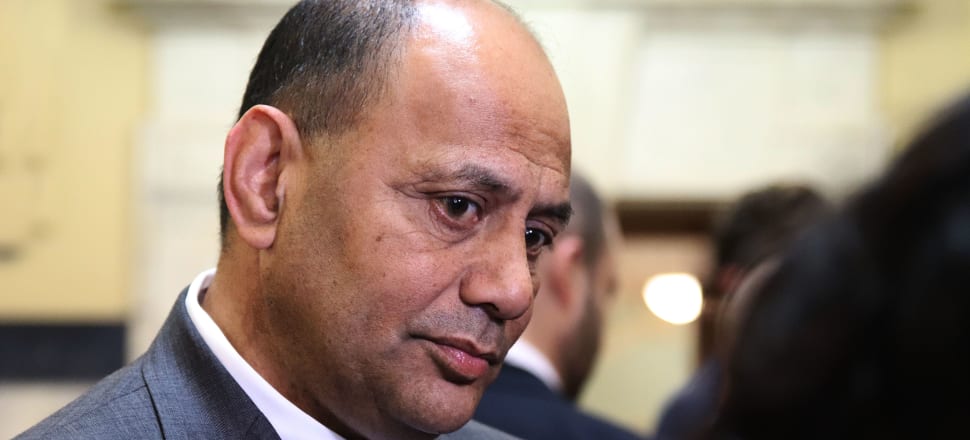
Willie Jackson has joined calls for action to safely protect candidates and MPs on the campaign trail at the same time police are expecting an increased chance of 'disruption and threats' in the lead-up to the election
The chair of Labour’s Māori caucus and candidates, Willie Jackson, says his party has been too slow to act on a proposed cross-party meeting to discuss safety concerns before the election campaign.
In October last year Green Party co-leader James Shaw, who was assaulted by a member of the public in broad daylight in Wellington in 2019, called for all parties to meet to discuss potential safety threats.
In March he went further, telling Newsroom there’s a “real possibility we will see some form of political violence this year and someone will be injured, or worse.”
The day after Newsroom published Shaw’s comments, Green Party co-leader Marama Davidson was knocked to the ground by a motorbike, which struck her at a pedestrian crossing before a counter-protest where British anti-transgender activist Posie Parker was speaking.
READ MORE: * Risk of political violence high - Shaw * Threats against MPs unite parties * 'Greater and more intense' threats against MPs
All political parties continue to support a meeting and Shaw has said he’d like to see the Government lead it, but in a non-partisan way.
His party had been “a bit apathetic and we need to get our act together and make it a priority”, Jackson told Newsroom on Tuesday.
“It’s not that we’re not interested in engaging, it’s just other things come up. And James is right, and we’ve probably been too slow in getting our act together, and we should try and do that before the campaign.”
Jackson said Newsroom’s questions had served as a reminder and he would look to raise it with his party’s leadership to “make it a priority”.
“We’re always a little bit worried and we take our own precautions.” - Act leader David Seymour
In a briefing to Ginny Andersen when she took on the role of Police Minister earlier this year, it was noted that police had already begun the planning phase.
"Recent environmental stressors, including Covid-19, have impacted New Zealand and New Zealanders in significant ways," according to the briefing.
"These are considered likely to increase the potential for disruption and threats to the general election and, in particular, to MPs, political candidates and those proximate to them."
The briefing went on to say the scale of the police response that would be needed was "significant" and "there may be calls for service notably above current standing capacity requiring reallocation of resources".
In a statement to Newsroom, police said its role was to "enhance and maintain the safety and security of the 2023 general election" and planning was underway for before, during and after the electoral process.
Jackson said it was disappointing there was a need to consider safety concerns for MPs and candidates on the campaign trail.
“But this is 2023, we’ve had mass protests outside, we’ve got people who continually threaten MPs online.
“I see that and it doesn’t bother me, but it certainly bothers lots of other people and particularly with some of our women MPs, they need support because it’s not easy when you read threats online about your life or what’s going to happen to you,” Jackson said.
The Māori caucus and election team has already discussed in recent months making sure everyone has enough support and staff to campaign safely.
Shaw was pleased to hear renewed support from Labour and told Newsroom safety concerns were a “growing issue in this campaign”.
Though there had been no new incidents since March, Shaw said he expected that was “partially because there’s better security at events”.
Act leader David Seymour says he's very aware of the need to prepare for any potential safety risks.
“We’re always a little bit worried and we take our own precautions.”
He used the example of his deputy, Brooke van Velden, who has been actively campaigning in the Tamaki electorate and taking part in many street corner meetings.
“That means you’re out and there’s not a lot of people around but you’re still very visible." He said the party made sure she always has people with her when she was doing that.
Seymour was also mindful, however, of not “overdramatising or scaring people away” from participating in democracy and stressed the thousands of people he and his MPs had met with at meetings across the country with no security problems whatsoever.
Te Pāti Māori co-leader Debbie Ngarewa-Packer told Newsroom her party’s focused first and foremost on protecting “everyone who has a tangata whenua view politically”.
She was happy to sit down with other MPs to discuss safety concerns and said she’d use that meeting to tell other parties the damage some of their own billboards and messaging was doing to Māori who felt racially attacked.
The National Party has extensive health and safety protocols for anyone campaigning, including doorknocking in pairs and in daylight hours.
National’s campaign chair and senior MP Chris Bishop told Newsroom the plan was to have a traditional grassroots campaign with public walkabouts, doorknocking, human billboards, and street corner meetings.
He doesn’t believe safety concerns are any worse than previous elections but isn’t opposed to meeting with other MPs to have a chat about it.







